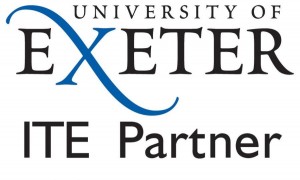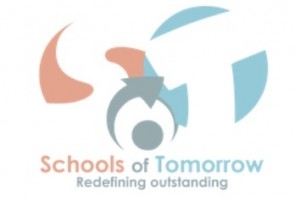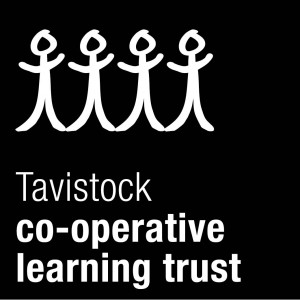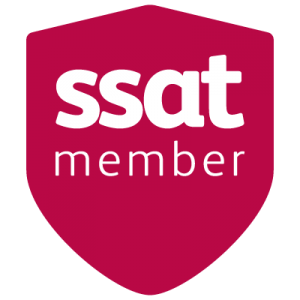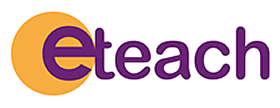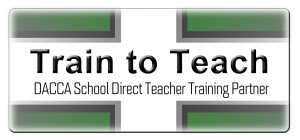Here’s a thought. We are currently, inadvertently, all part of a forced unofficial social experiment: the impact of online activity on the brain. Any role in school is hugely demanding at the moment and of course we all feel the pressure of being squashed between the responsibilities to the DfE and to colleagues, families and children. But one emerging issue we have not really spoken about openly is the ‘brain haze’ that occurs on an almost daily basis for those spending extended periods of time in online meetings and lessons. The human brain has high neuroplasticity, especially when we are pre-25, but for older (more mature?) people like me, ‘Zoom-fatigue’ is now a diagnosed condition. Our brains simply do not like extended online activity. It is much more mentally challenging. Research by Microsoft in National Geographic this week demonstrates that brainwave patterns associated with stress and over-work rise by up to 16 times when working in online meetings when compared to working with others in person. The same must apply to online teaching and learning. The limit to concentration in adults is believed to be 30-40 minutes, and it is recommended that we need a 30 minute break every 2 hours at least. That is quite challenging.
Think back to the old ways of working and appreciate them. Humans are normally communicating even when they are quiet, and use dozens of non verbal cues to maintain connections with others. These cues are much easier for our brains, and, due to the highly evolved social interaction skills we have, they are largely innate. We have become adapted to a mechanism known as continuous partial attention. This is when we use non-intense stimuli to ‘rest’ in cycles, naturally choosing alternative inputs to guide our understanding of ideas being communicated. Now online meetings, lessons and other activities require the brain to function from intense sustained attention to words and static images as stimuli . Multi person screens magnify this problem as the challenge to the brain’s central vision forces it to decode many people at once. It is somewhat of a relief to me to learn that the drop out of information that happens to me is not, in fact, something that I should get cross about, but my brain simply being overwhelmed by external stimuli it is unfamiliar with.
This knowledge is compelling. We will stick with the reduced remote lesson length I introduced a few weeks back and I now consider the decision to introduce the midweek break on Wednesday mornings to be essential. The rather flippant (I hope) remark made to me about Ofsted’s potential view on this, received one of my short, to the point answers. If we do not pay attention to the impact of extensive online communication on our brains, we will be accelerating the mental health crisis that is already lapping at our feet. And it starts with interrupted sleep patterns. So, if this chimes, do something about it now.
Supporting Mental Health must remain high on the agenda. Below Barbara Manning summarises her view on the work we have undertaken.
“This week is Children’s Mental Health Week. Never was such a week more necessary and never has it been so tricky to try and provide meaningful and authentic support with so many of our children and young people working remotely and being locked down. However, with my RS teacher hat on I am aware that pride is regarded as a sin, so forgive me colleagues for I shall sin….
When I started my career, or at least earlier on (in the last century), Every Child Mattered, we had SEAL. Every local authority championed Healthy Schools and we all strived to get the badges, plaques and logos. Then along came Thrive ……The strategies came and went, as did the funding, but I have seldom met a fellow professional who did not care about the children and young people in their daily charge. This is a school that cares from ground up and from top to toe. I see this every day. It is awe inspiring.
Tavistock College has made huge strides towards our goal and vision of being a mental health hub of excellence for our entire community. We have enlisted as a Pioneer School with the Anna Freud Centre and we are a member of the Anna Freud Schools in Mind network. We are fortunate to have well- being and mental health principles, policy and strategy in place. We regularly revisit the checklist for emotionally healthy schools. Work is currently ongoing to accredit what we already do by means of a formal Well Being Award and student voice will be critical to this endeavour. Our eye is very rarely off the proverbial ball. In addition, our website has a dedicated area packed with mental health information, resources and signposting for learners and parents.
However, my first big fat sin; absolute unfettered pride in abundance at the work Neil Hosking has been doing historically and in lockdown to keep Living Life To The Full (LLTTF) at the forefront of the provision for our students. For those of you who are unfamiliar with LLTTF it is a cognitive behaviour therapy-based approach to promoting resilience and self-help responses in those who are struggling with anxiety. Ideally, LLTTF is a peer led programme and Neil spent significant time pre-lockdown training his mental health ambassadors. If you have looked at the website recently, you may have seen the brand-new Tavistock College mental health logo designed by the Year 7 students who were about to embark on the LLTTF journey with Neil? Alas, lockdown did strike and in a magnificent response Neil has developed an online offer with a suite of podcasts now available through the aforementioned mental health area of the college website. These are just as relevant to adults as they are to our learners so do please visit the website and contact Neil if you would like more information. I now commit the sin of envy because there was nothing of this nature, let alone quality, available when I was at school with Einstein and Cleopatra a very, very long time ago.
It should not have escaped anyone’s attention that we are currently hosting our third psycho social role emerging placement for two Plymouth University trainee Occupational Therapists (OTs). Kayla and Kristel are with us for a total of twelve weeks on what is currently a unique placement locally. Their remit is to leave us a legacy of well being for both staff and students. Currently amongst other things they are working independently and with Neil to make a live and recorded mindfulness offer to all members of the community. The student offer is under development for release imminently, the live staff offer is now available. If you work at Tavistock College, you can engage in some mindfulness with Kayla from 9:45am to 10:15am on Tuesday and/or Thursday during the period 02 Feb to 25 Feb 2021. The link, should you be able to attend and want to find out more about mindfulness and self-care is; meet.google.com/mbk-wvbk-ggs
You are all doing a brilliant job of safeguarding our learners during this strange and challenging time. THANK YOU. Please keep doing what you are doing because this also fills me with great pride and gratitude. Our Well Being Practitioner on site from Monday to Thursday is Clair Thomas, and she is able to take referrals in respect of any young person whose social emotional and/or mental health is foundering. https://drive.google.com/drive/folders/163a_LLn8wmYKNjqcgtuH2lipgix4KOr-). Finally we have Mental Health First Aid (inclusive of bespoke bereavement support for the young people) in place for children, young people and adults. The posters around the college identify these colleagues and all contact is confidential as is any approach you make to APL Health or Talk Works https://www.talkworks.dpt.nhs.uk/
At the risk of appearing greedy or gluttonous, I cannot write about our mental health provision without mentioning the raft of quality solution focused mentoring that goes on both formally and informally. Despite lockdown, Trudi Massey and her team at Catalyst are still able to support our students as is Vicki Lloyd another of our partners, from the Youth Café. Similarly, Young Devon, Kooth, Chat Health (School Nurse led text message-based support), Young Minds, NSPCC, CAMHS and many other partner agencies are still there and adapting their offers to be COVID compliant. We also have Sarah Hallett and Kieran Williams onsite doing exceptional behaviour support work alongside Jill Hodge who offers Attachment Based Mentoring to some of our must vulnerable learners. I have seen every day from CPOMS how much informal well being mentoring tutors are offering through their lockdown contact with students. I am truly humbled. You are amazing!
I referred earlier to emotionally healthy schools. No school can be truly emotionally and mentally healthy unless appropriate relationships prevail. Are we a trauma informed school? No! Not yet. Will we be? Yes! We have a duty to the children and the community we serve to ensure that social capital is being created and reinvested at every opportunity and this comes through relationships. I would go as far as to suggest that relationships are everything! (Challenges on postcards please, it might be the nearest some of us get to a holiday this decade). Research shows clearly and compellingly that proactive intervention is more efficient and cost effective than reactive approaches. “Learning to be and learning to live together is as critical as academic learning to know and to do”. (Sue Roffey).
Well-being begins with WE, not me. With this in mind the senior team will be starting to plan for the roll out of our relational policy and practice with trauma informed approaches at the core. This will integrate Boxall profiling, attachment-based mentoring, HumanUtopia Heroes, the graduated response and a host of other things that we currently do engage with but in a more strategic and holistic manner. It will be a challenge but, bring it on!”
In the chaotic times we operate in, it is amazing to me that anyone has time to go the extra mile. However, to end on a positive note, I was delighted to learn that two students have managed via online lessons and a couple of in school session to take a LAMDA qualification. Tom Gourd in Y12 has received Grade 7 in Acting (Merit) and Talisker Pearson (Y8) has gained a Grade 4 (Distinction) in Reading for Performance.
Please try to rest this weekend. It is essential.
Sarah





